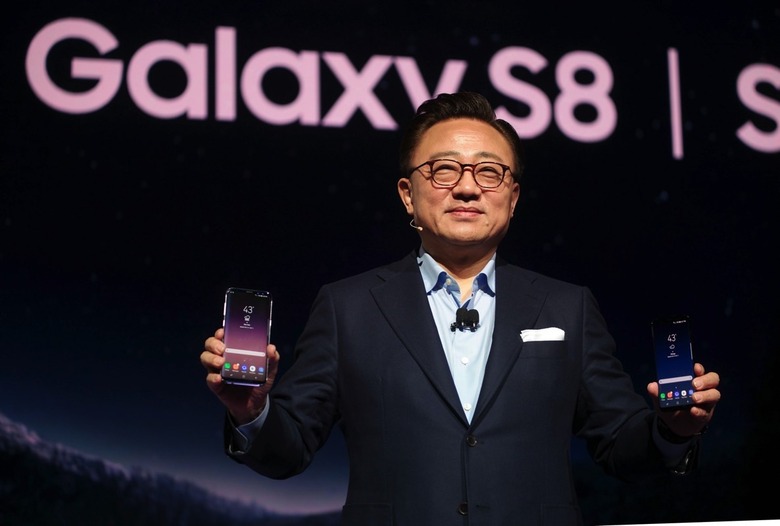Samsung May Have Lied About How Fast The Galaxy S8's Storage Really Is
The Galaxy S8 is a phone that's supposed to double down on quality, since it's the first flagship to come out after last year's Galaxy Note 7 disaster. So far, there have not been any major issues with the handset, although Galaxy S8 users have witnessed various minor problems with the phone such as the screen's red tint, Wi-Fi connectivity troubles, and unexpected restarts. But now, a new report indicates that Samsung may have been lying to you about one of the phone's most important components.
The Galaxy S8 features built-in UFS 2.1 storage, which is Samsung's fastest flash storage for mobile devices. However, SamMobile discovered that Samsung has quietly removed the mention of UFS 2.1 storage from the Galaxy S8's specifications page. Initially, Samsung's Galaxy S8 page said the Galaxy S8 phones ship with UFS 2.1 storage, although a fine print said that storage "may differ by country and carrier." Samsung has since removed the UFS 2.1 mention completely.
Galaxy S8 buyers posting on xda-developers discovered that the Galaxy S8 version that is powered by the Snapdragon 835 processor gets slower UFS 2.0 storage. Yes, that's the US version of Samsung's new flagship phone, which we've already seen is slower than the global model.
SamMobile adds that the UFS 2.1 storage delivers 800MB/s sequential read speeds, which is 300MB/s quicker than UFS 2.0's performance. That's not to say you'll notice any performance issues with UFS 2.0 memory during regular use. After all, previous Galaxy S versions also shipped with UFS 2.0 storage on board.
But it doesn't mean that Samsung should be able to quietly change that particular detail, especially since many people reporting on and/or reviewing the phone may have delivered wrong information about the phone — that it sports high-speed UFS 2.1 storage when that's not always the case.
Samsung isn't the only company to have been caught lying about a phone's specs. In fact just a few weeks ago, Huawei had to publicly address similar criticism. The company's CEO Richard Yu explained that the company used slower eMMC flash and high-speed UFS storage in the Huawei P10 because of component shortages. However, the Chinese smartphone maker also advertised its latest smartphone as a device that would deliver speedy UFS storage, before removing the mention of UFS memory from its website.
